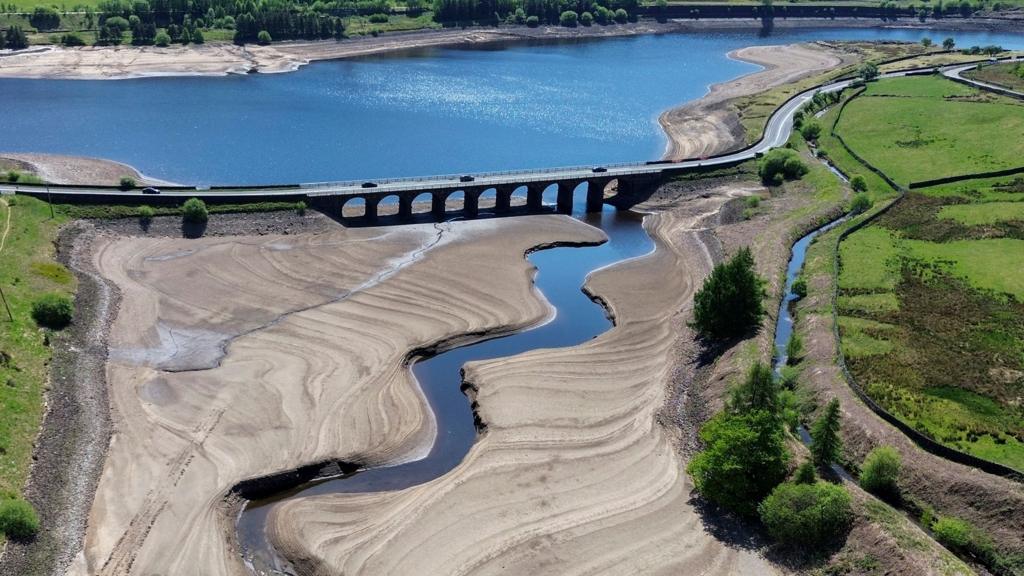England faces potential widespread drinking water shortages within the next decade if new reservoir construction doesn’t commence, a government minister has warned.
This urgent announcement follows the government’s decision to expedite the planning process for two major reservoir projects.
However, overriding local objections is a politically sensitive issue, and even with accelerated timelines, these reservoirs may not be operational for over a decade.
Experts also advise that reduced household water consumption will be necessary to ensure sufficient supplies, particularly given rising temperatures and population growth.
The government will now make final decisions regarding the proposed Fens Reservoir in Cambridgeshire and the Lincolnshire Reservoir, bypassing local planning authorities. This streamlined approach, according to Water Minister Emma Hardy, is crucial to alleviate bureaucratic delays.
In a BBC Breakfast interview, Hardy stated, “Failure to build these reservoirs will lead to critical drinking water shortages by the mid-2030s.”
Current projections estimate completion of the Cambridgeshire and Lincolnshire reservoirs in 2036 and 2040, respectively.
Dr Glenn Watts, water science director at the UK Centre for Ecology & Hydrology, highlights that these reservoirs will enhance drought resilience in a region already experiencing high water demand and arid conditions.
Reservoirs act as crucial buffers against drought by storing excess rainfall.
The Met Office anticipates an increased likelihood of droughts in the coming decades due to climate change-induced hotter, drier summers.
This year’s exceptionally dry spring, as detailed in recent reports, has underscored the urgency of these preparations. North-west England is currently officially in drought, according to the Environment Agency.
Increased demand from new housing, data centers, and other sectors further exacerbates the situation. Notably, no major reservoirs have been completed in England since 1992.
Last year, the government and water companies jointly proposed the construction of nine new reservoirs by 2050, potentially adding 670 million liters of daily water capacity.
This is in addition to the Havant Thicket reservoir project in Hampshire, slated for completion by 2031.
The government aims to expedite the remaining seven proposed reservoirs through legislation, granting national-level decision-making authority.
David Porter, senior vice president of the Institution of Civil Engineers (ICE), acknowledges the complexity and lengthy timelines of reservoir projects, emphasizing that streamlining the process is beneficial.
The water industry broadly supports this initiative. David Henderson, chief executive of Water UK, stresses the critical need for immediate construction to avoid escalating costs and delays.
However, expedited construction comes at a cost, potentially impacting consumer water bills. Furthermore, no new major reservoirs are anticipated before the end of this decade.
Experts caution that reservoirs alone are insufficient and advocate for prioritizing water management strategies within a changing climate.
Prof Hannah Cloke of the University of Reading advocates for a comprehensive approach, including leak reduction, waste minimization, and rainwater harvesting.
She further suggests stricter regulations on new construction and retrofitting existing buildings to enhance water efficiency.
The projects are likely to face opposition from local communities, especially those potentially displaced by reservoir construction.
Dr Kevin Grecksch of the University of Oxford criticizes the government’s expedited planning approach, anticipating public backlash.
Conversely, David Porter of ICE emphasizes the importance of prioritizing the broader public interest, while acknowledging the need for respectful consideration of local concerns.
Shadow environment secretary Victoria Atkins attributed the water supply pressures to Labour’s policies on farming and immigration.
Additional reporting by Justin Rowlatt, Esme Stallard and Miho Tanaka; map by Christine Jeavans
Sign up for our Future Earth newsletter for the latest climate and environment news from the BBC’s Justin Rowlatt. For international readers: Sign up here.
The UK’s saltmarshes lock away climate-warming greenhouse gases in layers of mud, a new report from WWF says.
RRS James Cook embarks to study the Porcupine Abyssal Plain, monitoring life at depths of 5,000m.
Saskatchewan’s premier says the situation is “unlike anything we have faced in quite some time, if not ever”.
Wales has clocked 648 hours of sunshine in May – higher than the UK average.
Heat pump installs are increasing and major planning restrictions have been removed to increase uptake.

